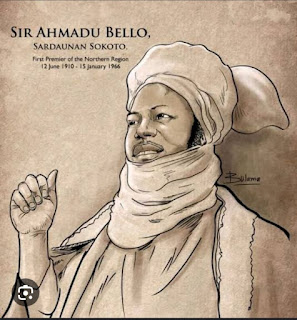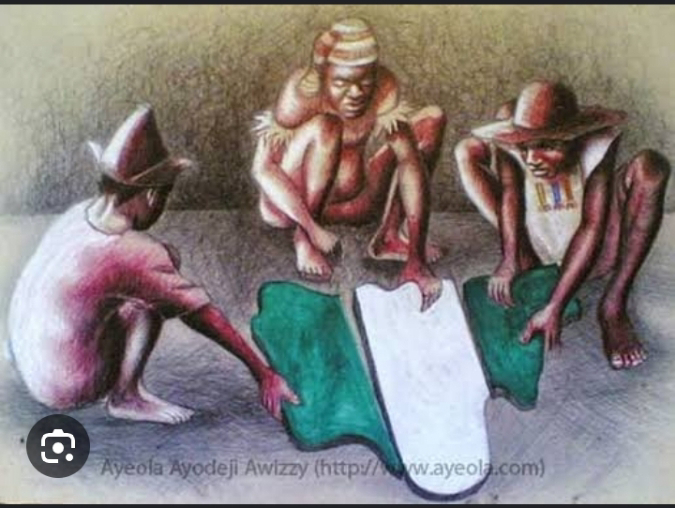Nigeria As An Independent State, And The Formation And Collapse Of The First Republic
Nigeria became independent on October 1, 1960. The period between independence and when the first military coup d'etat first took place on Jan 15, 1966 is generally known as the first republic although the country only became an official republic on October 1, 1963. After an election on February 1961, the Cameroonians also voted to join Nigeria as they were originally administered separately.
At independence, Nigeria had all the trappings of a democratic state and was indeed regarded as a beacon of hope for democracy. It had a federal constitution that guaranteed a large portion of autonomy to the three (later four) regions; it operated a parliamentary democracy modeled along British lines that emphasized majority rule; the constitution included an elaborate bill of rights; and, unlike other African states that adopted one-party systems immediately after independence, the country had a functional, albeit regionally based, multiparty system.
These democratic trappings were not enough to guarantee the survival of the republic because of certain fundamental and structural weakness. Perhaps the most significant weakness was the disproportionate power of the North in the federation.The departing colonial authority had hoped that the development of national politics would forestall any sectional domination of power, but it underestimated a regionalized party system in a country where political power depended on population.
1959 Independence Elections
In the general election of 1959 to determine which parties would rule in the immediate post-colonial period, the major ones won a majority of seats in parliament but non won enough seats to constitute a national government. A coalition government was formed by the NPC and NCNC, the former having been greatly favored by the departing colonial authority. The coalition provided a measure of north-south consensus that would not have happened if the NCNC and the AG had formed a coalition. Nnamdi Azikiwe (NCNC) became the Governor-general (and president after the country became a republic in 1963), Abubakar Tafawa Balewa (NPC) was named Prime Minister and Obafemi Awolowo (AG) had to settle for opposition leader. The regional premiers were Ahmadu Bello (Northern Region, NPC) Samuel Akintola (Western Region, AG) Michael Okpara (Eastern Region, NCNC).
Reasons For Collapse Of The First Republic
Among the difficulties of the Republic where efforts of the NPC, the senior partner of the coalition government, to use the federal government's increasing power in the favour of the northern region. The NPC sought to address northern economic and bureaucratic disadvantages, actions such as this served to estrange the NCNC from its coalition partner. The reactions to the fear of northern dominance and especially the steps taken by the NCNC to counter political dominance of the north, accelerated the collapse of the young Republic.
Other events also contributed to the collapse of the first Republic. in 1962, after a split in the leadership of the AG that led to the crisis in the western region, a state of emergency was declared in the region and the Federal Government invoked it's emergency powers to administer the region directly. This actions resulted in removing the AG from regional power Awolowo it's leader along with other AG leaders were convicted of treasonable felony.
By the time of the 1964 general elections, the first to be conducted solely by Nigerians, the country's politics has become polarized into a competition between two opposing alliances one was the Nigerian National Alliance made up of the NPC and the NCNC the other was the United Progressive Grand Alliance, composed of the AG and their allies. Each of the regional parties intimidated it's opponent in the campaigns, when it became clear that the regularity of the federal elections could not be guaranteed, the army were called to supervise the elections when the elections were finally held under conditions that were not free and fair, the NCNC was returned to power in the east and midwest, while the NPC kept control of the North and was also in a position to form a Federal Government of its own. The rescheduled regional elections in 1965 were violent, the Federal Government refused to declare state of emergency and the military seized power on January 15th 1966. The first republic had collapsed.



Comments
Post a Comment